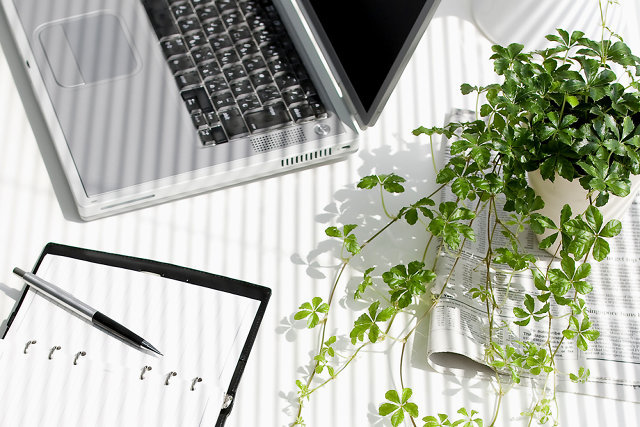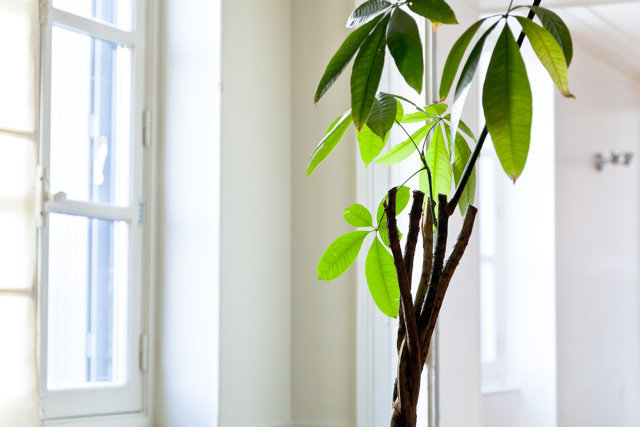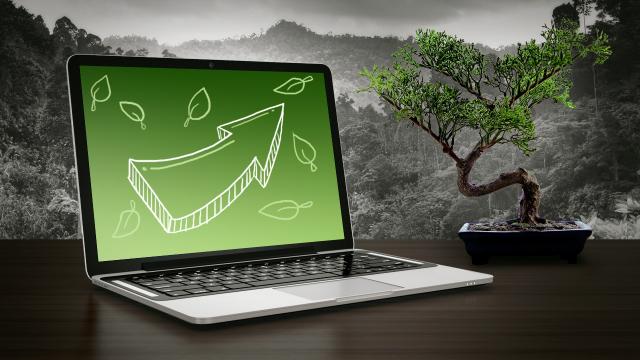Better productivity could be just a trip to the greenhouse away. Seriously. Office vegetation offers “micro-restoration” — the chance for our brains to recharge throughout the day.
This post originally appeared on Fast Company.
Few things rouse our appreciation for nature as much as spending every day in an office. Employees with windows that overlook vegetation report themselves much more satisfied than those with a view of other buildings and sidewalks. Workers in windowless offices tend to hang pictures “dominated by nature themes”, according to one scientific survey. They also have five times greater odds of buying plants to put around their workspace, according to another.
Desk plants may spruce up a place, but whether they have psychological powers in addition to visual charm is another matter. Over the course of two recent studies, a research team led by scholars from Norway tested the effect of desk plants on worker productivity. To simulate a work environment, the researchers issued an attention task that required test participants to read several sentences on a computer screen and remember the final word in each.
In the first study, published in 2011, some of the test participants performed the reading task while sitting at a basic wooden desk with nothing around it. The others did the same task at a desk surrounded by office flowers and foliage. Results of the experiment were quite clear: workers at the desk with plants improved their scores on the task the second time around; workers at the empty desk did not.
The second study, published this summer, reached similar conclusions in slightly different settings. Once again, test participants at a desk with flowers and plants showed more improvement on the attention task than those sitting at an empty desk. (Inanimate objects also improved task performance, though this might have been a statistical artifact of the dull setting.) Workers at a desk with plants and a window view had an additional cognitive boost.

Ruth K. Raanaas of the Norwegian University of Life Sciences, a collaborator on both studies, says office plants may be a simple, cost-effective way to keep workers satisfied and focused. “Most people spend a large proportion of their life at work,” Raanaas says, “so even small effects may have great practical significance when aggregated over employees and time of employment.”
[related title=”WHICH PLANTS?” tag=”officeplants” items=”1″]The new work adds to a long line of evidence tracing how the brain benefits from nature. Brief walks in the park help a person focus on a task, glimpses of trees reduce a driver’s road rage, views of vegetation raise a hospital patient’s spirits. These effects occur in smaller doses even when patches of nature are diluted by the built environment or broadcast on a plasma screen. Mere “pockets of green” in otherwise drab settings can enhance self-control and inhibit aggression.
By now you’re probably wondering just how nature works this psychological magic. There are many ideas, but most of the research points back to a premise conceived by University of Michigan psychologists Rachel and Stephen Kaplan called “attention restoration theory.”
The gist of “attention restoration theory” is that our brains expend a lot of energy on tasks that require direct attention. This mental fatigue can only be restored when we give our direct attention a break. Sleep can do the job, but when we’re awake, we can also refresh direct attention by shifting our minds to an indirect, or effortless form of engagement. Nature offers just this type of absorbing, restorative distraction.

Rachel Kaplan says that the “micro-restorative” impact of desk plants in the recent studies was especially impressive if you consider the brevity of each participant’s interaction with nature. After all, test participants only had two short breaks between the reading tasks. “It’s a very short, minimal intervention,” she says. “I think that is striking.”
Kaplan hopes this type of research convinces designers and employers to see desk plants as essential office supplies rather than perks or amenities reserved for senior workers. Many tiny bursts of attention restoration, accumulated during screen breaks or chats with co-workers, could add up to a great deal more focus. Desk plants might even be more refreshing than a window view, all told, because workers own them and likely feel the urge to tend them throughout the day.
“I do think the concept of micro-restoration is very useful in the office context,” Kaplan says. “So if you have little moments of looking up and seeing something that brings that resource back a little bit, some of those should make a huge difference.”
Want To Be More Productive? Buy Some Desk Plants [Fast Company]
Eric Jaffe writes about cities, history, and behavioural science. His latest book is A Curious Madness: An American Combat Psychiatrist, a Japanese War Crimes Suspect, and an Unsolved Mystery from World War II (Scribner, 2014). He lives in New York. Follow him on Twitter.

Comments